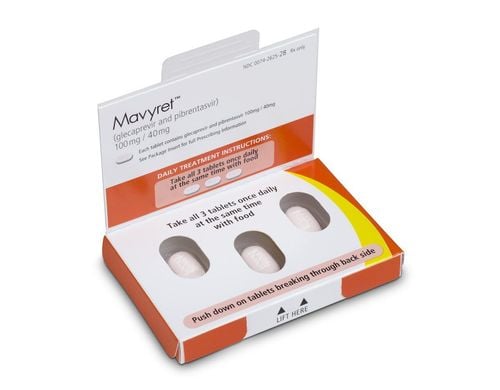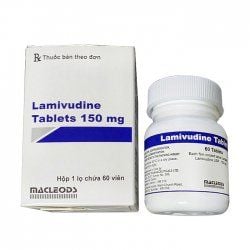This is an automatically translated article.
The article was professionally consulted by Specialist Doctor I Huynh Kim Long - Emergency Resuscitation Doctor - Emergency Resuscitation Department - Vinmec Danang International HospitalPeople infected with hepatitis B, if not treated promptly, will lead to many dangerous complications such as liver failure, liver cancer, and even death.
1. What is Hepatitis B?
Hepatitis B is a very serious liver infection caused by the hepatitis B virus, which is life-threatening. This is a type of viral hepatitis that has a great impact on global health, is a leading cause of cirrhosis and liver cancer.
When the virus is persistently present in a person's blood and other body fluids, hepatitis B infection can become chronic, also known as chronic hepatitis B virus infection.
2. How is hepatitis B transmitted?
One of the factors that shows the danger of hepatitis B is the ability to transmit the disease. Hepatitis B virus is extremely infectious, even 50-100 times higher than HIV virus. Anyone can be infected with hepatitis B.
The way hepatitis B is transmitted is through contact with the blood or body fluids of someone who is chronically infected with the hepatitis B virus. The most dangerous route of transmission is from mother to child. If a baby is born to a mother with chronic hepatitis B, there is a 90% chance the baby infected during birth will have a chronic infection.
Children infected with hepatitis B from their mothers will have a very high risk of complications of chronic hepatitis B, in addition to increasing the risk of spreading the disease because they can infect others with the virus.

3. How to prevent hepatitis B?
According to the World Health Organization (WHO), the safest and most effective way to prevent hepatitis B virus infection is by timely vaccination with hepatitis B vaccine.The first dose of hepatitis B vaccine should be given. as soon as possible after delivery (preferably within the first 24 hours), followed by 2 or 3 doses with a minimum interval of 4 weeks between each injection.
Also according to this organization's recommendation, it is very important to vaccinate babies against hepatitis B within the first 24 hours after birth because the way the disease is transmitted from mother to child is a contributing factor to increasing prevalence of chronic hepatitis B virus infection in Vietnam.
Newborns infected with the hepatitis B virus have no symptoms, but 90% of them may have a chronic infection. Therefore, hepatitis B vaccination for infants within 24 hours of birth will help prevent mother-to-child transmission.

Safe sex, using safe sex Use condoms to prevent hepatitis B virus infection. Couples before deciding to have children need to see a doctor to see if anyone has hepatitis B. During pregnancy, the mother also needs regular check-ups, in case the mother is infected with hepatitis B virus at this time, it will be dangerous for both mother and baby. Do not share needles. Needles to be used need to be sterile. Do not come into contact with anyone's blood or bodily fluids without protection. Do not tattoo, pierce, do teeth, .. in places that are not reputable. Do not share toothbrushes, razors, etc. with people whose health status is unknown.
Please dial HOTLINE for more information or register for an appointment HERE. Download MyVinmec app to make appointments faster and to manage your bookings easily.
Source: World Health Organization WHO













